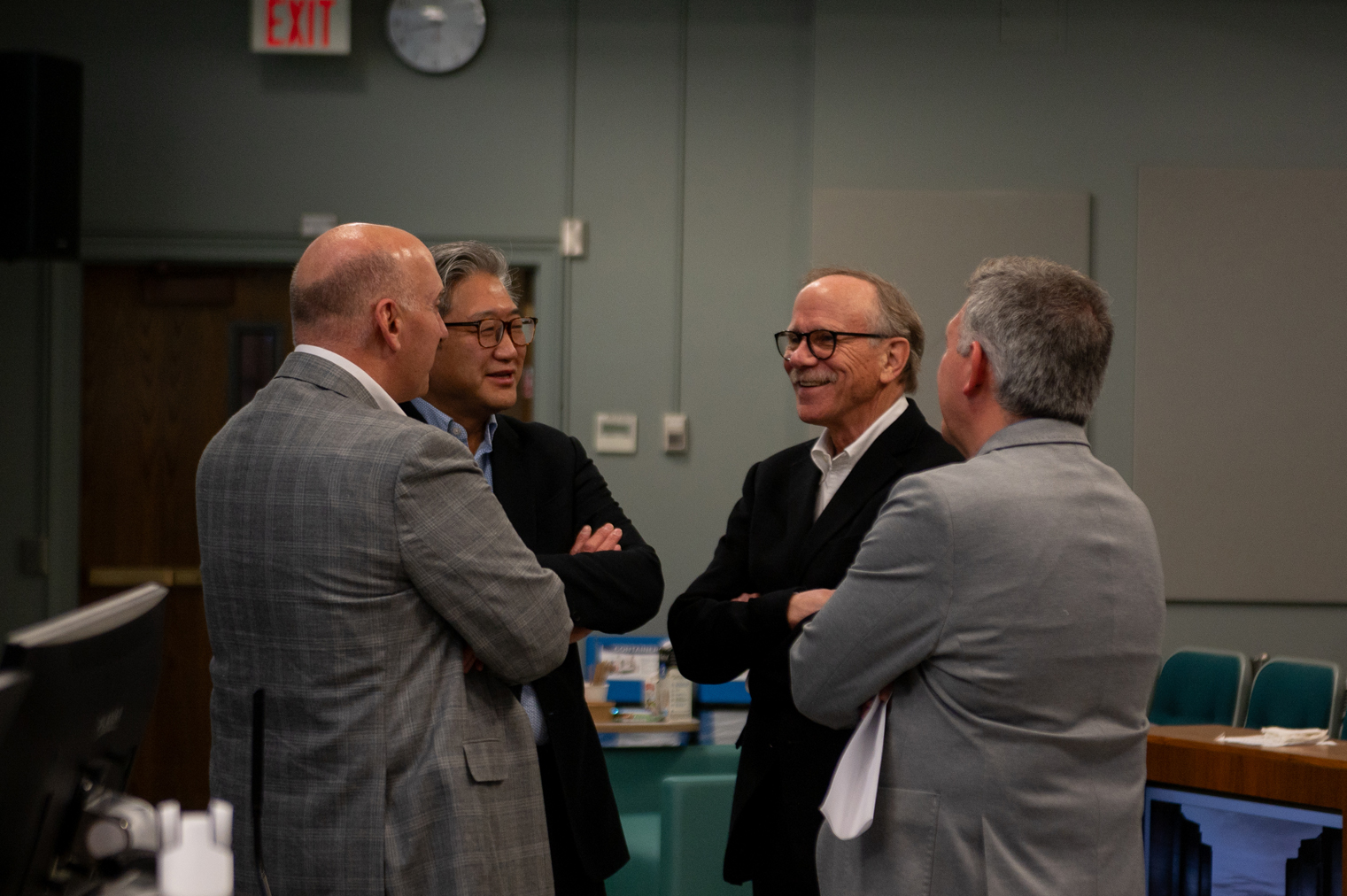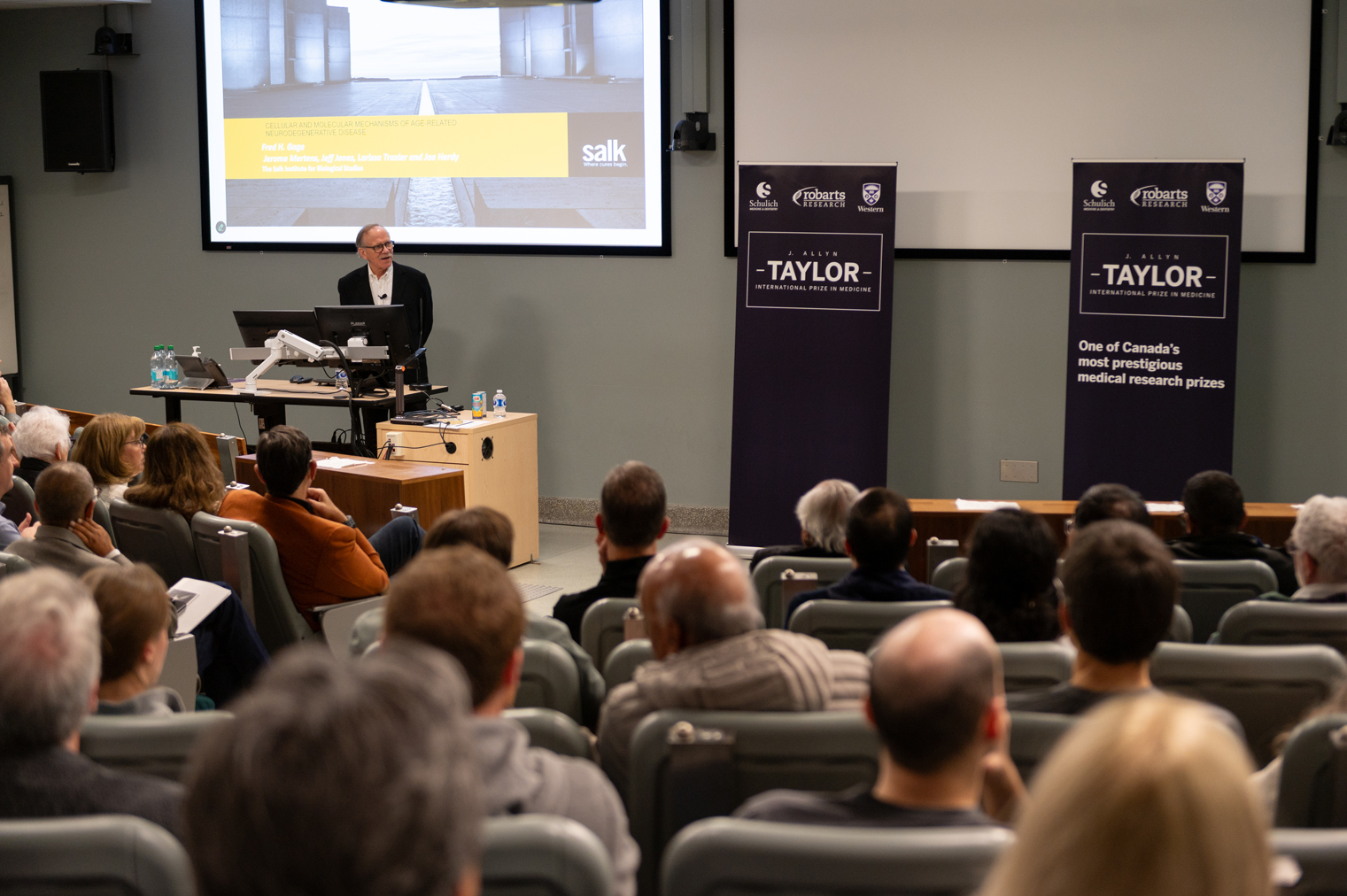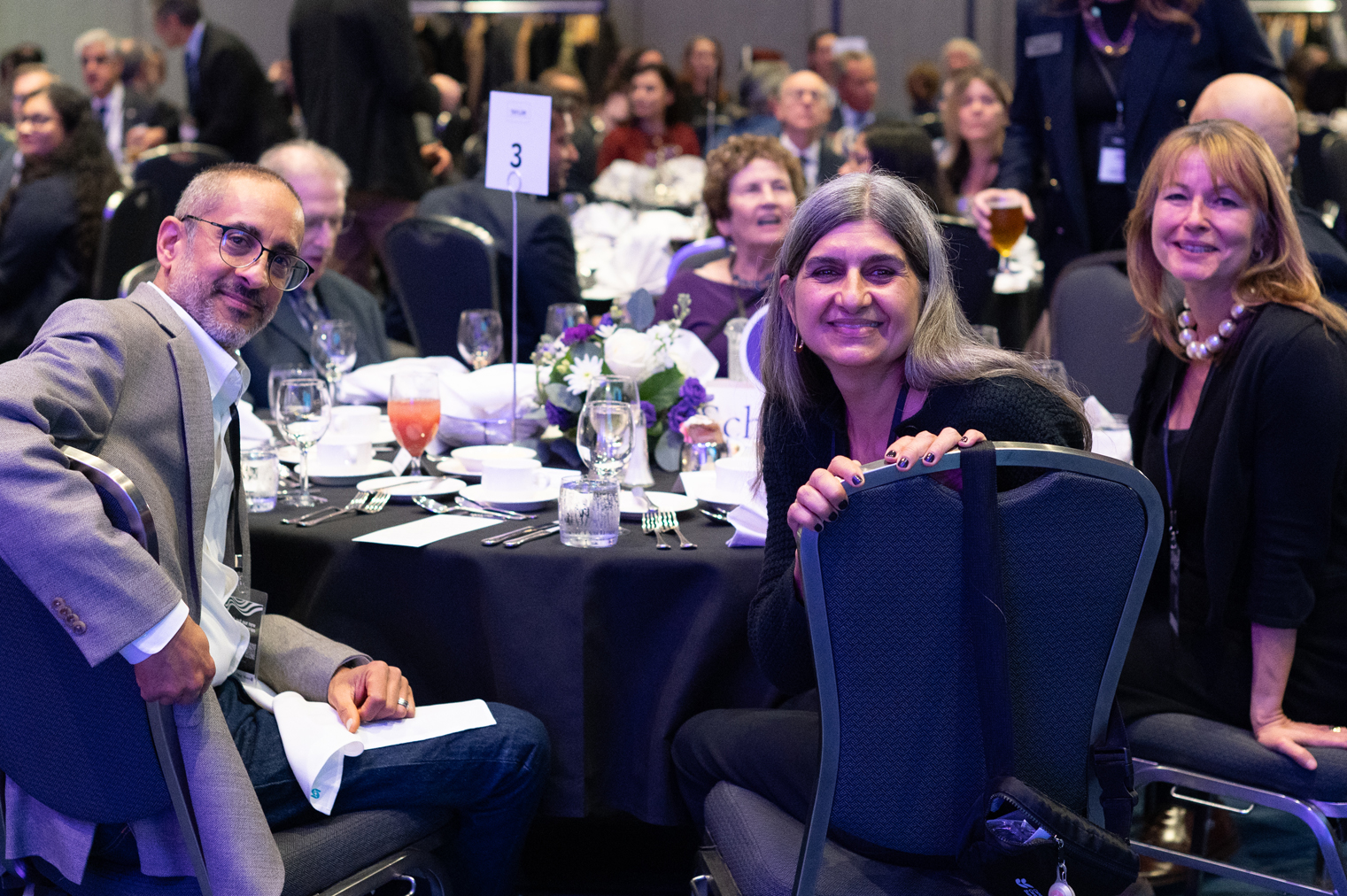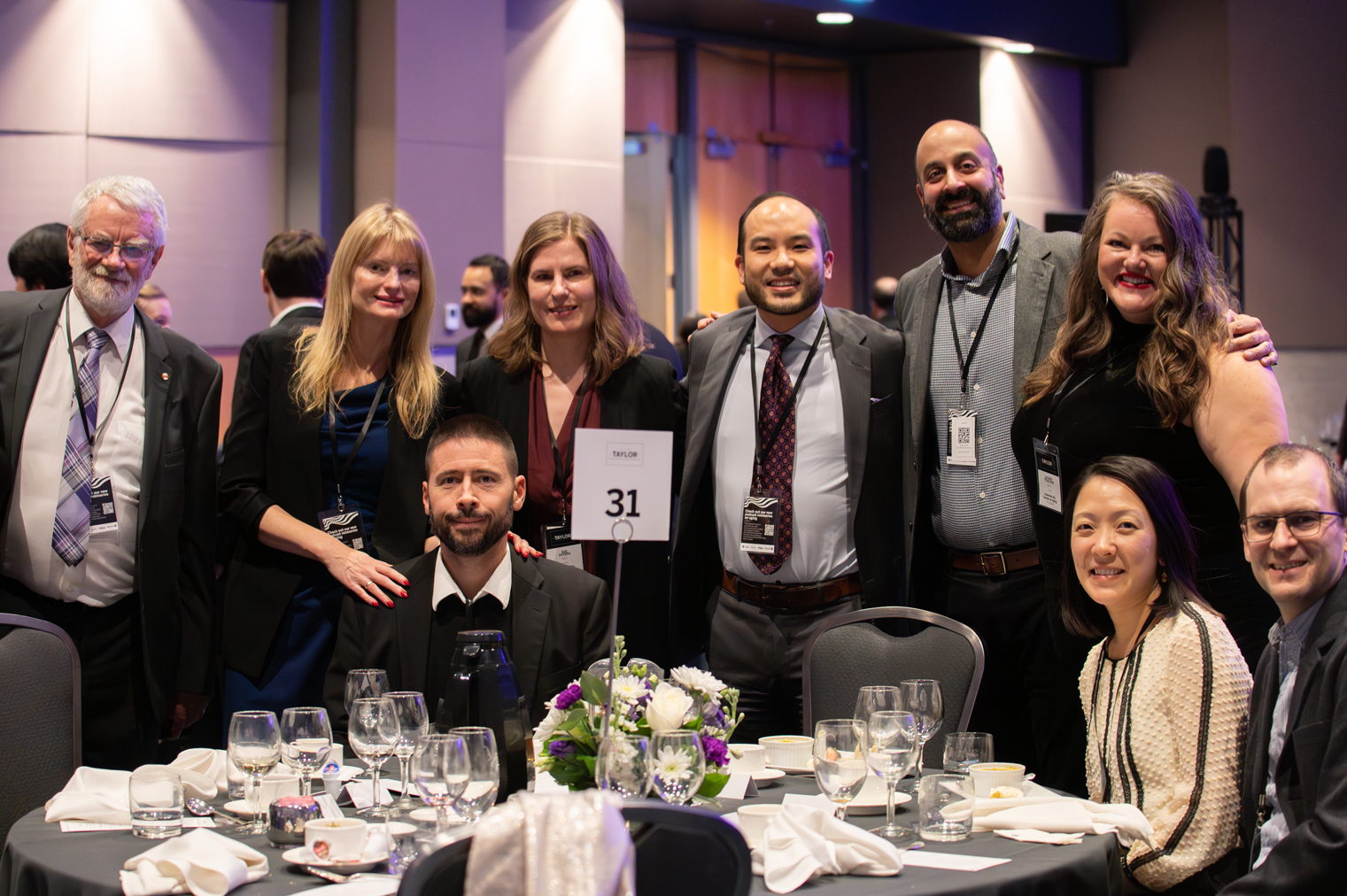Research community comes together to celebrate the Science of Aging

By Communications
As countries around the world grapple with the health challenges associated with rapidly aging populations, Schulich School of Medicine & Dentistry last night honoured the local and global scientific advances that are helping to re-shape the universal human experience of aging.
Nearly 300 scientists, researchers and health-care leaders came together at RBC Place London to celebrate research advances in “The Science of Aging,” the theme of this year’s J. Allyn Taylor International Prize in Medicine.
World-renowned U.S. neuroscientist Fred "Rusty" Gage, PhD, was awarded the 2024 Taylor Prize, based on his extraordinary body of work that has revolutionized scientific thinking about the aging brain’s own regenerative powers.
“This aging demographic presents challenges, but also tremendous opportunities, to reshape health care, sustainability, and society itself,” Schulich Medicine & Dentistry Dean John Yoo told the sold-out crowd. “The people in this room are leading that charge.”
Established in 1985, the J. Allyn Taylor International Prize in Medicine – one of Canada’s most prestigious medical research prizes – is named after the founding Chair of the Board at Robarts Research Institute. The award is generously supported by the Stiller Foundation and the family of the late J. Allyn Taylor.
A force of nature
Dean Yoo described Gage as a “force of nature” to the audience that included Western University leadership, researchers and trainees, partner hospitals, and alumni and donors, including the family of the late J. Allyn Taylor.
Gage discovered the human brain continues to generate new neurons, even in later life — a process called neurogenesis. This finding has opened doors to therapies aimed at enhancing brain plasticity, offering hope for combating age-related cognitive decline.
“When I was in medical school, we were taught certain truths that seemed like unshakable laws of nature,” Dean Yoo said. “The pioneering work of this year’s Taylor Prize recipient has challenged one of those fundamental truths. And in science, that’s no small feat. Science is inherently skeptical and resistant to change. It requires a force of nature to reshape our understanding.”
Awarding a team
Gage, the Vi and John Adler Chair for Research on Age-Related Neurodegenerative Disease at the Salk Institute in La Jolla, California, delivered the night’s keynote address, and participated in a “beyond the science” conversation with Schulich Medicine & Dentistry Professor Jane Rylett, scientific director of the Institute of Aging at the Canadian Institutes of Health Research.
“Prizes are often given to the head of a lab, but really this prize awards a team of present and past members of my lab,” Gage said in his remarks. “I have been so fortunate to have such talented scientists in my lab over many years.”
Western President and Vice-Chancellor Alan Shepard commended the 2024 Taylor Prize laureate and highlighted the impact of collaborative, interdisciplinary research happening at the University. “We have clinician scientists working side by side with basic scientists, engineers, social scientists, and other talented professionals to tackle humanity’s toughest health challenges.”
Shepard highlighted Western’s success in attracting increased research funding and also underlined the transformational impact of philanthropy on science, noting it “plays a key role in advancing vital health research like the work we are honouring tonight.”
Robert Bartha, Schulich Medicine’s vice dean of Research and Innovation, lauded the dedication of Robarts and Schulich Medicine scientists who are translating discoveries from the bench to the bedside to improve peoples’ lives.
“The hard work that all of you do, every day in the lab, has the potential to positively impact the people in our community and around the world. We thank each and every one of you for your dedication and drive toward our collective pursuit of scientific excellence and making lives better,” he said.
The celebration also capped off a new podcast miniseries, produced by Schulich Medicine & Dentistry, that features leading aging researchers who are redefining what it looks like to get older.
Called The Catalysts, the miniseries features fascinating talks on aging research, balancing the aging body and mind, virtual reality and a close-up on SuperAgers, as well as a conversation with the 2024 Taylor Prize laureate.
The Catalysts lineup
Oct. 2 – Fast-Tracking Drug Development with Lisa Saksida and Ravi Menon
World-renowned scientists Lisa Saksida, PhD , and Ravi Menon, PhD , explore a bold approach to accelerating treatments for Alzheimer’s, Parkinson’s, and dementia by “failing fast." They focus on quickly identifying ineffective therapies to prioritize the most promising ones. “In just the Alzheimer’s space over the last 40 years, there’ve been about $260 billion spent on clinical trials,” Menon notes. “Beyond the money, think about the tens of thousands of patients whose hopes were dashed.”
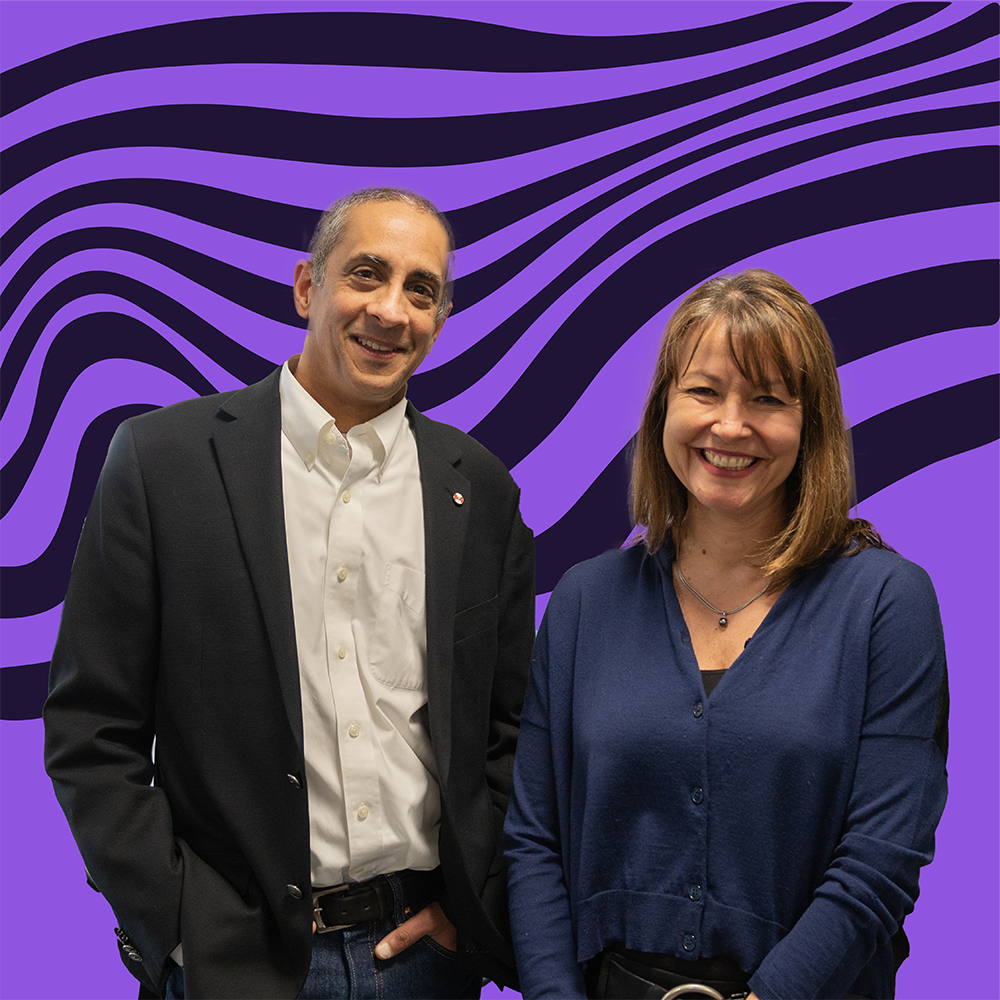
Oct. 9 - In Sync: Body & Mind with Dr. Manuel Montero-Odasso
Leading geriatrician Dr. Manuel Montero-Odasso, PhD discusses his groundbreaking trial that highlights the strong link between physical health, mobility and cognitive function. His research is shedding light on one of the most pressing questions for older adults living with dementia. “There is a stigma around dementia and cognitive decline,” Montero-Odasso explains. “It’s a question we’re still grappling with today.”

Oct. 16 - Riding the Highs and Lows with Jibran Khokhar
As the fastest-growing demographic of cannabis users, older adults are turning to it for more than recreation. Jibran Khokhar, PhD , a leading expert on cannabis and brain health, shares his insights into how cannabis can address chronic pain, anxiety and neurodegenerative diseases in aging populations – while separating fact from fiction regarding its medicinal benefits.

Oct. 23 - From the Real to the Surreal with Paul Frewen
Imagine putting on a pair of virtual reality glasses and being transported to a cruise along the Rhine. Psychologist Paul Frewen, PhD, explores how virtual reality is transforming mental health care for older adults, fostering social connections, improving well-being and offering innovative interventions for mental health challenges.

Oct. 30 - The SuperAgers with Angela Roberts
Meet the SuperAgers—older adults who perform cognitively like people decades younger. Western University’s Angela Roberts, PhD , takes us into the world of these remarkable individuals, who defy the typical effects of aging with sharp minds, a zest for life and resilience in the face of adversity.
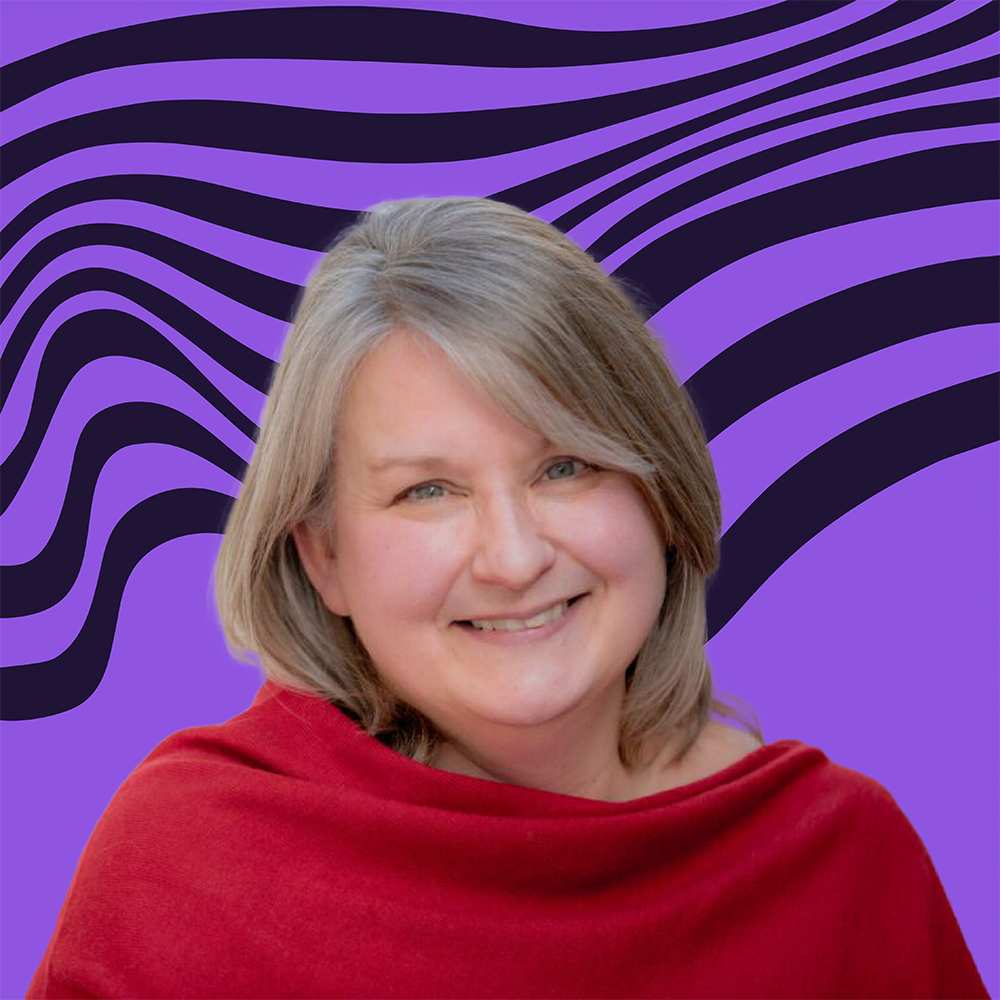
Nov. 6 – With 2024 Taylor Prize laureate Fred “Rusty” Gage
With many breakthroughs to his credit that have advanced our understanding of the aging brain, 2024 Taylor Prize laureate, Fred "Rusty" Gage from the Salk Institute in La Jolla, California, will be an extraordinary finale to the series. His work focuses on brain plasticity and regenerative power in the context of neurodegenerative decline.

You can find The Catalysts on Spotify and Apple Podcasts .




